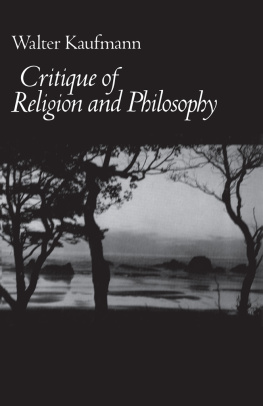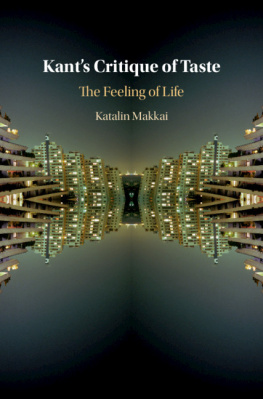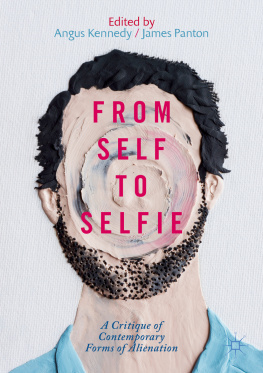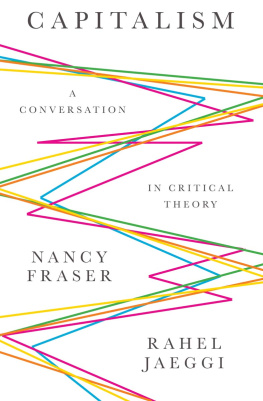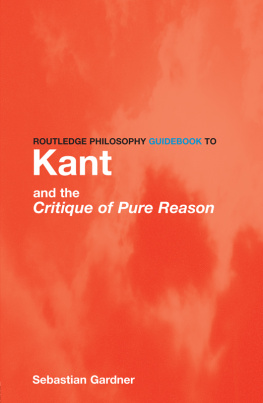Rahel Jaeggi - Critique of Forms of Life
Here you can read online Rahel Jaeggi - Critique of Forms of Life full text of the book (entire story) in english for free. Download pdf and epub, get meaning, cover and reviews about this ebook. year: 0, publisher: Harvard University Press, genre: Religion. Description of the work, (preface) as well as reviews are available. Best literature library LitArk.com created for fans of good reading and offers a wide selection of genres:
Romance novel
Science fiction
Adventure
Detective
Science
History
Home and family
Prose
Art
Politics
Computer
Non-fiction
Religion
Business
Children
Humor
Choose a favorite category and find really read worthwhile books. Enjoy immersion in the world of imagination, feel the emotions of the characters or learn something new for yourself, make an fascinating discovery.

- Book:Critique of Forms of Life
- Author:
- Publisher:Harvard University Press
- Genre:
- Year:0
- Rating:4 / 5
- Favourites:Add to favourites
- Your mark:
- 80
- 1
- 2
- 3
- 4
- 5
Critique of Forms of Life: summary, description and annotation
We offer to read an annotation, description, summary or preface (depends on what the author of the book "Critique of Forms of Life" wrote himself). If you haven't found the necessary information about the book — write in the comments, we will try to find it.
Critique of Forms of Life — read online for free the complete book (whole text) full work
Below is the text of the book, divided by pages. System saving the place of the last page read, allows you to conveniently read the book "Critique of Forms of Life" online for free, without having to search again every time where you left off. Put a bookmark, and you can go to the page where you finished reading at any time.
Font size:
Interval:
Bookmark:
CRITIQUE OF FORMS OF LIFE
Rahel Jaeggi
translated by
Ciaran Cronin


The Belknap Press of Harvard University Press
Cambridge, Massachusetts
London, England
2018
Copyright 2018 by the President and Fellows of Harvard College
All rights reserved
Jacket design: Annamarie McMahon Why
978-0-674-73775-4 (cloth)
978-0-674-98869-9 (EPUB)
978-0-674-98870-5 (MOBI)
978-0-674-98871-2 (PDF)
This book was originally published as Kritik von Lebensformen Suhrkamp Verlag, Berlin 2014
The translation of this work was funded by Geisteswissenschaften InternationalTranslation Funding for Humanities and Social Sciences from Germany, a joint initiative of the Fritz Thyssen Foundation, the German Federal Foreign Office, the collecting society VG WORT, and the Brsenverein des Deutschen Buchhandels (German Publishers & Booksellers Association).
The Library of Congress has cataloged the printed edition as follows:
Names: Jaeggi, Rahel, author.
Title: Critique of forms of life / Rahel Jaeggi ; translated by Ciaran Cronin.
Other titles: Kritik von Lebensformen. English
Description: Cambridge, Massachusetts : The Belknap Press of Harvard University Press, 2018. | This book was originally published as Kritik von Lebensformen (c) Suhrkamp Verlag, Berlin 2014 Title page verso. | Includes bibliographical references and index.
Identifiers: LCCN 2018010776
Subjects: LCSH: Social sciencesPhilosophy. | Social historyPhilosophy. | Social changeMoral and ethical aspects. | Social ethics. | Criticism (Philosophy)
Classification: LCC H61.15 .J3413 2019 | DDC 170dc23 LC record available at https://lccn.loc.gov/2018010776
The critical theory of society, on the other hand, has for its object men as producers of their own historical form of life in its totality. Each datum depends not on nature alone but also on the power man has over it.
Max Horkheimer
Federal elections, Olympic ceremonies, the actions of a commando unit, a theater premiereall are considered public events. Other events of overwhelming public significance, such as childrearing, factory work, and watching television within ones own four walls are considered private. The real social experiences of human beings, produced in everyday life and work, cut across such divisions.
Oskar Negt and Alexander Kluge
Can forms of life be criticized? Can forms of life be said to be good, successful, or even rational as forms of life? Since Kant, it has been considered a foregone conclusion that happiness or the good life, in contrast to the morally right life, cannot be specified in philosophical terms. And with John Rawls and Jrgen Habermas, what are probably the two most influential positions in contemporary political philosophy propose, referring to the irreducible ethical pluralism of modern societies, to abstain from discussing the ethical content of forms of life. With this, philosophy withdraws from the Socratic question of how to live ones life and confines itself to the problem of how, when faced with the multitude of incommensurable notions of the good life, a just cohabitation can be ensured in which different forms of life exist alongside each other. The political order of the liberal constitutional state is represented accordingly as an attempt to organize this cohabitation so that it remains neutral between forms of life. But when the central concern is no longer to realize the right shared form of life and becomes instead to ensure that the coexistence of the different forms of life is as free from conflict as possible, then questions of how we conduct our lives become displaced into the realm of private preferences. Then there can be no arguing about forms of life, just as there can be no arguing about matters of taste. Forms of life become an inaccessible black box; at most their effects can be criticized with reasons.
As it happens, there are obvious reasons for such a position. Not only is it doubtful whether an agreement would be so easy to reach among individuals who differ fundamentally in their conceptions of the world and their ethical beliefs. In addition, the aversion to being dictated to by (philosophical) moralizers concerning how to shape ones life is one of the ineluctable components of our modern self-understanding. This is why the liberal black box may seem to be one of the conditions of possibility of modern self-determination and what first creates the free space in which different ways of life can develop (or maintain themselves) undisturbed.
The guiding assumption of the present study is that there is something wrong with this thesisindeed that, in certain respects, things are precisely the reverse. If we abandon the internal constitution of our social practices and forms of life to extra-philosophical darkness, as Canadian philosopher Charles Taylor has put it, we are in danger of accepting them in an inappropriate way as given. To do so would be to declare something that has public significance over hastily to be an ineluctable question of personal identity and thereby to insulate thematic domains that should remain within the catchment area of democratic collective self-determination against rational argumentation. Perhaps the burden of proof should be reversed: it is no easy matter to exclude the ethical question of how to live ones life from processes of individual or collective decision-making. It has always already been answered, implicitly or explicitly, in every social formation. This also holds for the form of social organization that embraces the pluralism of forms of life. But then to ask whether forms of life can be criticized is, in a certain sense, to ask the wrong question. It is not in spite of but precisely because of the situation of modern societywhere this is understood following Hegel as the immense power which draws everything to itselfthat the evaluation of forms of life cannot be relegated to the preserve of particular preferences and ineluctable ties.
This becomes particularly over the marketization of goods such as health, education, or housing; or over our societys understanding of itself as a work-oriented society can also be understood as conflicts over the integrity and constitution of forms of life.
Criticism of forms of life, therefore, is not concerned with icing on the cake questions of the good life (in the sense of a luxurious philosophy of the art of living)that is, with questions that would only be worth posing after basic problems of social organization had been solved. What is at stake is the internal constitution of those institutions and supraindividual connections that lend our lives a certain form and within which our possibilities for acting and shaping practices first arise. But if the project of modernity, the claim of individuals to live their own lives, is not simply a matter of being free from the interference of others, thenaccording to the thesis defended herepublic as well as philosophical reflection concerning forms of life is less a problematic intervention in residues of individual or collective identity that must not be questioned than the condition of the possibility of transforming ones conditions of life and making them ones own. Criticism of forms of lifeor better: a critical theory of criticism of forms of lifeas I understand it here, therefore, is not intended as advocacy of a relapse into premodern paternalism, but instead as an exploration of the conditions of what can be conceived in the tradition of critical theory as a ferment of individual and collective
Font size:
Interval:
Bookmark:
Similar books «Critique of Forms of Life»
Look at similar books to Critique of Forms of Life. We have selected literature similar in name and meaning in the hope of providing readers with more options to find new, interesting, not yet read works.
Discussion, reviews of the book Critique of Forms of Life and just readers' own opinions. Leave your comments, write what you think about the work, its meaning or the main characters. Specify what exactly you liked and what you didn't like, and why you think so.

